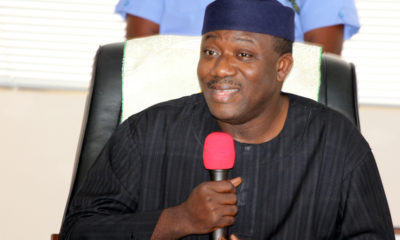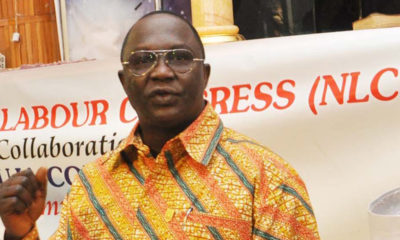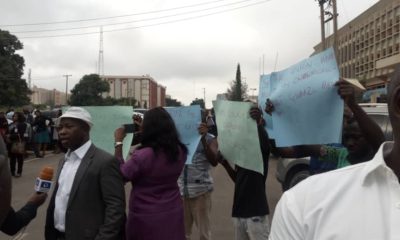- Minimum Wage Negotiation Committee Holds Inaugural Meeting
The committee set up by the Federal Government to negotiate the consequential adjustment arising from the new minimum wage will on Thursday meet for the first time, three weeks after its inauguration and less than a week before its job is scheduled to be completed.
The committee was inaugurated by the former Secretary to the Government of the Federation, Boss Mustapha, on May 14, 2019 with the Head of the Civil Service of the Federation, Winifred Oyo-Ita, appointed as chairman.
Other members of the committee are ministers of ministries relevant to the negotiation. Mustapha said the committee would work for four weeks with the inaugural meeting scheduled to hold on May 20, 2019 but the meeting was never held. All the ministers appointed to be part of the committee had left their positions after the expiration of their term as ministers in the last administration.
Organised labour had accused government of deliberately using inauguration to delay the negotiation, expressing the fear that government could begin to look for a way of reducing the amount using complex financial technicalities.
Secretary of the Joint National Public Service Negotiating Council, Alade Lawal, told our correspondent said it was not necessary to wait for new ministers to be appointed before negotiation would commence. According to him, permanent secretaries in the ministries were competent to hold forth for government.
On Monday, a member of the committee who spoke on condition of anonymity because he was not asked to speak on behalf of the negotiation team said a date had finally been fixed, adding that permanent secretaries would represent ministers at the inaugural meeting.
He said, “Finally, a date for the inaugural meeting has been fixed for Thursday, June 6, 2019 at the Office of the Secretary to the Government of the Federation. Permanent Secretaries from various ministries will act in place of the ministers that were appointed to be on the board. That is governance. That is the way a government should run state business.
“Government must not allow a vacuum to delay state matters because there is always a provision in the constitution for someone to act on behalf of government. During the tripartite committee meetings on minimum wage, most of the time, the ministers were represented by the permanent secretaries.
“They made good representation. They are in custody of the technical details because they are always in government even when there are no ministers. They have all the details. It takes a minister up to one year to understand business of a ministry, so we cannot be waiting for that. Enough time had been wasted on this issue.”
Confirming the date of the meeting, HCSF, Oyo-Ita, speaking through the Director, OHCSF, Mrs Ogunmosunle Olawunmi, told our correspondent that the meeting was actually scheduled to hold on Tuesday (today) but was shifted to Thursday because of the public holiday.
Also earlier on Monday, Director of Communication at the SGF office, Mr Willie Bassey, told our correspondent that the office was not responsible for the delay in the commencement of the committee’s inaugural meeting.”

 Forex2 weeks ago
Forex2 weeks ago


 Naira1 week ago
Naira1 week ago
 Naira4 weeks ago
Naira4 weeks ago
 Company News4 weeks ago
Company News4 weeks ago




 Naira2 weeks ago
Naira2 weeks ago
 Billionaire Watch1 week ago
Billionaire Watch1 week ago




 Naira1 week ago
Naira1 week ago




 Naira3 weeks ago
Naira3 weeks ago




















